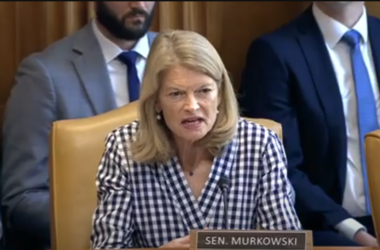Congressman Nick Begich, along with Representatives Greg Stanton (D-AZ), Tracey Mann (R-KS), and Maggie Goodlander (D-NH), introduced the Air Traffic Control Workforce Development Act of 2025, bipartisan legislation to tackle the nation’s air traffic controller staffing shortage and invest in the future of American aviation.
The legislation codifies and expands the FAA’s Enhanced Air Traffic-Collegiate Training Initiative (AT-CTI), improves recruitment and retention incentives, funds tower simulator systems, and supports mental health services for air traffic controllers, which addresses one of the most serious safety risks currently facing U.S. airspace.
It also authorizes $20 million in annual grants for training institutions and directs the FAA to improve recruitment and retention.
Begich emphasized that safe, reliable air travel is “core to life in Alaska.”
“Whether it’s delivering food and supplies to remote villages or ensuring medevac services reach those in need, air traffic controllers are essential to our state,” said Congressman Begich. “By training the next generation of controllers now, we’re building a safer, more connected future for every American.”
The FAA employs 2,300 fewer Certified Professional Controllers (CPCs) than needed, and continues to fall below its hiring and certification targets. The shortage has forced many controllers to work mandatory overtime, leading to fatigue and increasing the risk of errors. The bill will help reverse the trend by expanding training pipelines, improving training equipment, and placing high-fidelity simulators nationwide to accelerate training timelines.
The bill is backed by many in the aviation sector, including the National Air Traffic Controllers Association (NATCA), the Air Traffic Control Association (ATCA), Airlines for America (A4A), and the American Association of Airport Executives (AAAE).
The Air Traffic Control Workforce Development Act of 2025 is the House companion to Senate bill S. 697 and has earned the support of major stakeholders across the aviation industry.






